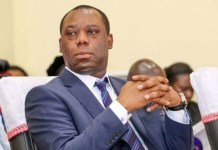In the aftermath of government finally giving the boot to the fraudulent Power Distribution Services (PDS) contract, observers have been counting the costs to back demands for heads to roll.
It is estimated that the country spent not less than US15million to facilitate processes for the 25-year concession to operate. The cash was blown on hefty lawyers’ fees and advisory services provided around the short-lived concession agreement.
Given that the agreement did not travel past even one year, there are calls for people who played roles in the PDS mess to be prosecuted.
The calls have come from the likes of Paa Kwesi Anamoah Sakyi, of the Institute of Energy Security (IES), Emmanuel Wilson of the Crusaders Against Corruption (CAC) and Johnson Asiedu Nketia, General Secretary of the opposition National Democratic Congress (NDC).
Together with other observers, they demand a forensic audit into the concession so that culpable people responsible for the embarrassing outcome of the PDS scandal can be put before the law.
Mr. Anamoah Sakyi points out that in addition to financial loss that the scandal has cost the State, it has also taken a lot of shine away from Ghana’s international image and global stage creditworthiness.
“It means that now if we go into the market we can only borrow at a higher cost,” Mr. Anamoah Sakyi said.
Government, on Saturday, announced the cancellation of the PDS contract which had been on suspension since July 30. The Akufo-Addo government, upon suspending the concession had explained that the concessionaires behind the contract had been fraudulent about their responsibility to provide bank guarantee required by the contract.
The consortium was made up of Manila Electrical Company Limited (Meralco), a Pilipino company which owned 30% shares and Anaergia SA an Angolan company which owned 19% shares. 51% of shares had been owned by a group of Ghanaian firms.
Per the contract, the Consortium was to provide a bank guarantee for a counterpart funding of US$510million, which was to be made available in yearly tranches of US$100million over five year period. The Consortium could not raise this money but pretended it could.
In executing the charade, the Consortium had bamboozled the Akufo-Addo government with a guarantee from a Qatari Insurance company, Al Koot. Al Koot was to later disavow its supposed guarantee, revealing that the signature of its official captured under PDS’s contract may have been forged.
Later, further dirty files that emerged indicated that the Consortium, while creating the impression that it had provided the necessary bank guarantee, had actually been using the assets of the Electricity Company of Ghana which it was supposed to manage for 25 years, to generate money to pay off its principals. In specificity, PDS was using ECG’s cash flows to pay off its principal.
Simply put, therefore, the PDS Consortium had come to the table without a dime pretended it had US$510million money needed for investment into the ECG, and then while pretending had commandeered US10billion worth of ECG’s assets.
When the government suspended the PDS concession in July, many called for the government to cancel the contract as a whole. But the government said it needed to investigate. While digging its heels, the Millennium Development Authority had hired a private consultancy, US base FTI Consulting, to investigate and it had come out clearing both PDS and MiDA.
The clearance had emboldened a corporate governance fight that PDS was putting up to save the deal. However, on Saturday, Government announced that it had scraped the whole contract. The decision has since brought back on to the front burner, the issue of fraudulent behaviour on the part of PDS. The new angle to this is that the government blew some US$15million on paperwork to clear the grounds for the concession









